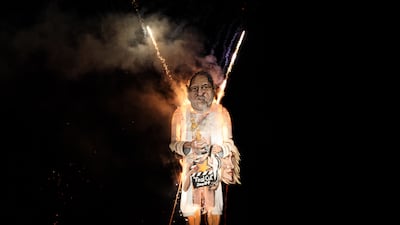I’ve been called a lot of unsavoury things in my career in public life. When I talk about women asserting themselves I’ve been called a feminazi. I’ve been called a deviant. I’ve even been told that it’s lucky I’m too ugly and covered up for a certain kind of assault. That’s what happens when you speak up as a woman. You are met not with reasoned debate but attack, hatred and outrage.
That's exactly what has been happening to women after the pivotal moment of the #MeToo hashtag.
Finally, we were hearing millions of women's voices about the overwhelming experiences of harassment, in their own words. Finally, the daily experiences of women were being given credence.
Yet over the last few days there's been a turn in the tone of the conversation, where men are starting to dominate the discussion again: what does harassment mean to them? Are men under siege? Is this the end for men? And why are women making such a fuss?
It's an extraordinary turn of events. Could it be that men are feeling left out? With all this talk of #MeToo men want to steer the conversation back to themselves.
After all, we know that despite peddling the myth that women all talk all the time, studies show that men actually dominate the share of conversation. And also that they overestimate the amount of time women talk.
It must also explain why during this unprecedented period where we are finally listening to women talking about a problem that women are uniquely placed to discuss - what women experience - it seems men just can't help themselves but grab time and space to talk about their opinions and how they are suffering.
Me too! Me too! Go the cries, like toddlers who feel they are no longer receiving the attention they deserve. Why can't we be naughty and have tantrums, they scream.
_____________________
Read more from Opinion
Priti Patel's ill-advised trip to Israel delivers a chilling post-Brexit postcard
We mustn't use pseudo-orientalism as an excuse for inaction in the Arab world
The Trump year: part compelling, part confusing
_____________________
It is the only explanation for the bizarre responses that are emanating from menfolk. This week, the UK has been rife with men who simply can't seem to understand just how hard it is to be a woman and simply exist. And worse, who think that talking about harassment is actually somehow restricting them.
Just look at some of the examples from the UK and you can see similar responses all around the world.
High profile national male influencers have been saying things that suggest it's all gone too far and anyway, why can't they touch women if they want to?
Some have said, what’s the fuss, it's not a real sex scandal, is it? Except of course for the 50 per cent of the population who are suffering.
Then there's the argument that there are bigger things to worry about. In the UK that means Brexit. As though daily abuse suffered by women is not a big thing.
And then there are the downright bizarre points of view where I can't even begin to understand how someone could make that comparison or draw those conclusions. One government minister suggested a radio interview was equivalent to a sexual assault by Harvey Weinstein. Another leading news columnist explained that if women complain about harassment then they should wear niqabs and are really militant Islamists.
And the best one is this: how should men know how to behave properly?
It's obvious when people feel under threat, they assume others will behave with the lack of values they have been busy inflicting. There's an attempt to keep the platform for themselves when they realise this is going to require change. And that attempt is leading to a lot of squealing - and most of it just crazy nonsense at that. A radio interview is not like rape. Women wanting abuse to stop does not mean men will be crushed. And who over the age of two needs to be told that abusing or hurting other people is something to avoid?
Enough. Stop making #MeToo about men. It’s about women. And the best thing men can do is stop saying ridiculous things and making fools of yourself.
Shelina Zahra Janmohamed is the author of Generation M: Young Muslims Changing the World


